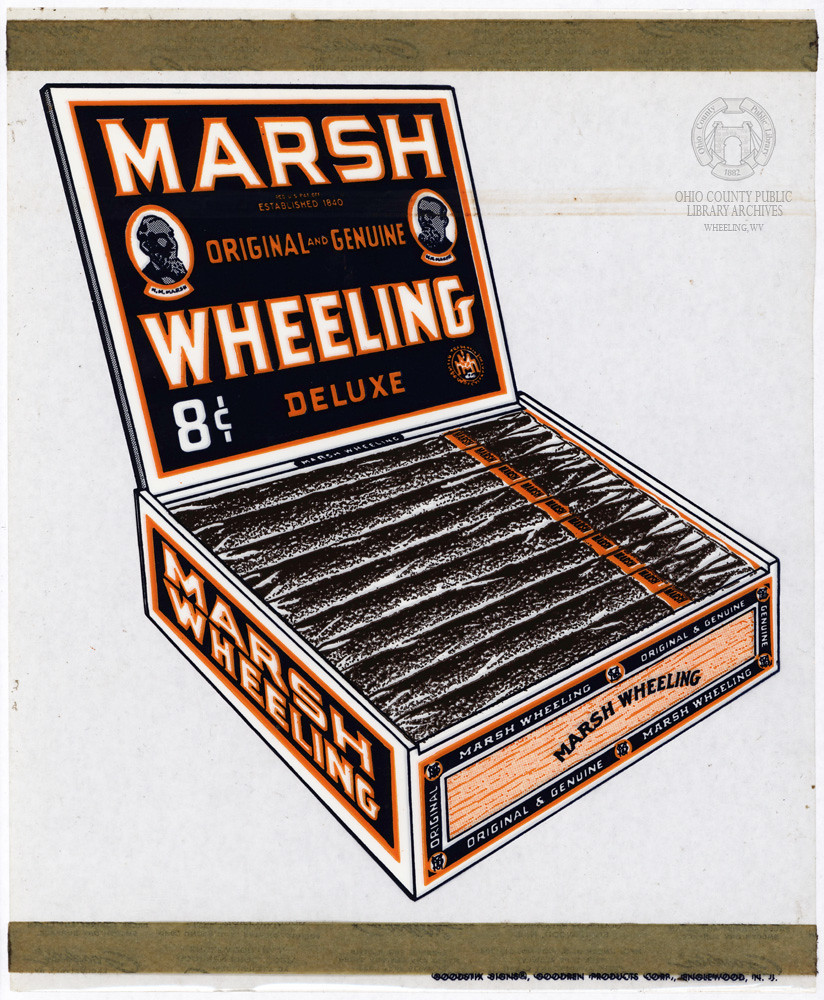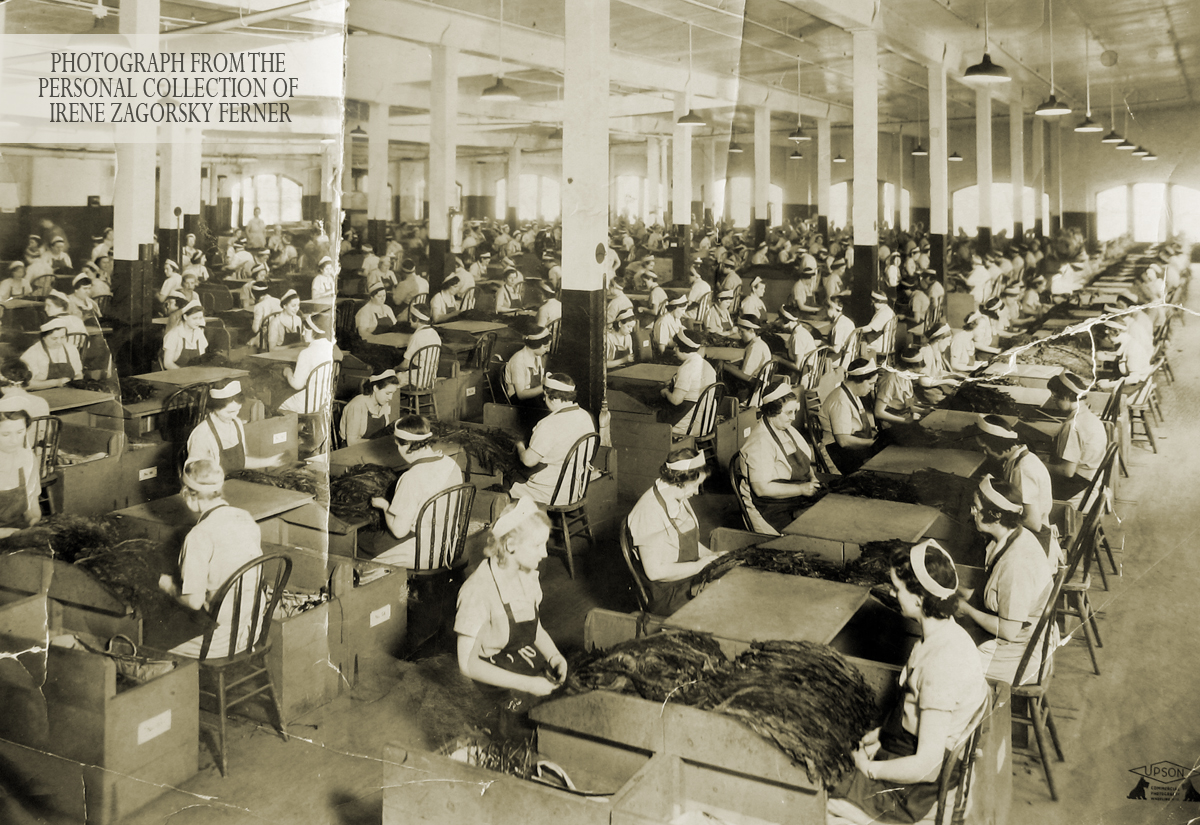The Great Depression (1929-1941) is commonly thought of as a time of doom and gloom, with high unemployment, reduced wages and “Hoovervilles” (crude houses built on the outskirts of a city typically populated by those who lost their homes in the Great Depression) all across America.
West Virginia was hit especially hard by this time, but women in Wheeling were provided an opportunity for employment and wages in a career previously held only by highly skilled, unionized male workers at M. Marsh and Sons.
GETTING IT ROLLING
Marsh Wheeling Stogies, later called M. Marsh and Sons, was founded in 1840 by Mifflin Marsh. It began as a small business where Mifflin sold his hand-rolled stogies at the Wheeling Wharf and to passersby on National Road out of a simple basket. His successful salesmanship and popular stogie allowed Mifflin Marsh to develop the company with his son, William, naming it M. Marsh and Son. They opened their first factory on Water Street shortly after 1869. In 1908, the company moved to their historic location at 905–915 Market St. and employed hundreds of Wheeling’s citizens.

Marsh Wheeling’s “Workingman’s Stogie” was hand rolled until the 1930s as cigar rolling was increasingly mechanized. M. Marsh and Sons rented more than 40 machines in 1931 that increased production from each roller hand-rolling up to 1,000 stogies a day to the machines rolling 5,000 stogies a day. The unionized stogie rollers began a strike shortly after these machines were introduced, and Marsh Wheeling broke the strike by hiring women as machine operators at a lower pay than their unionized male counterparts. These female employees were so adept at their new jobs that women continued to be hired following the Great Depression and World War II.
WOMEN KEPT IT ROLLING
Female rollers infiltrated the highly unionized male dominated world of cigar rolling and shocked the unionized male rollers with their skill and ability to adapt to the process of rolling cigars. Not only did the women work for less money, they were skilled at the new job. An early first-hand account from one of the female rollers attributed their skill to the fact that their hands were already very agile from sewing and knitting. This agility made it easier to operate the new machines and to add the wrappings to the cigars as they exited the rolling machines. The workers’ talents for cigar rolling kept them employed even in the economic disaster of the Great Depression and the end of the union worker’s strike against M. Marsh and Sons.

Since the 1930s and ’40s, women are still key employees in cigar manufacturing to this day. Marsh Wheeling Stogies closed in Wheeling in 2001, and operated under National Cigar Company in Frankfurt, Indiana, until they closed in 2016.
Cigar maker James K. Pogue noted the importance of women and the dramatic shift in their involvement in the industry during an interview. Pogue is quoted as saying, “Years ago when all cigars were handmade, they were mostly men. Then as they converted to machines, it gradually went over to probably 95 percent women.”
Sadly, there are no new Marsh Wheeling Stogies being made in Wheeling or Frankfurt although its famous box and the legacy of the female rollers lives on.



